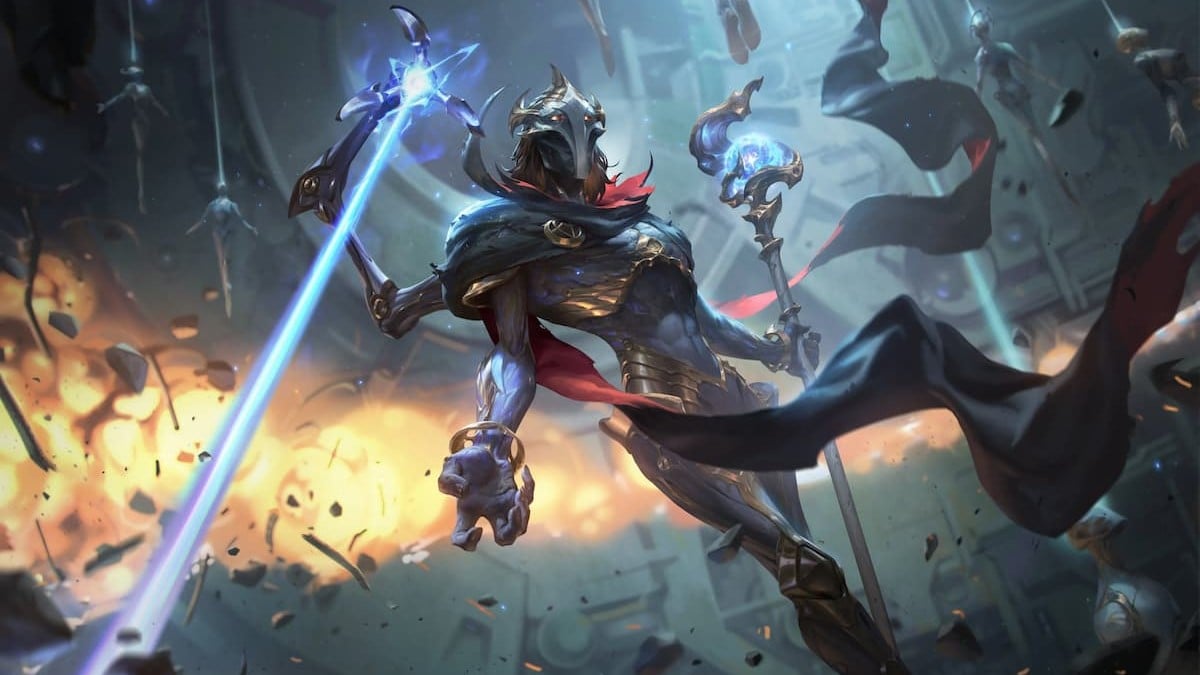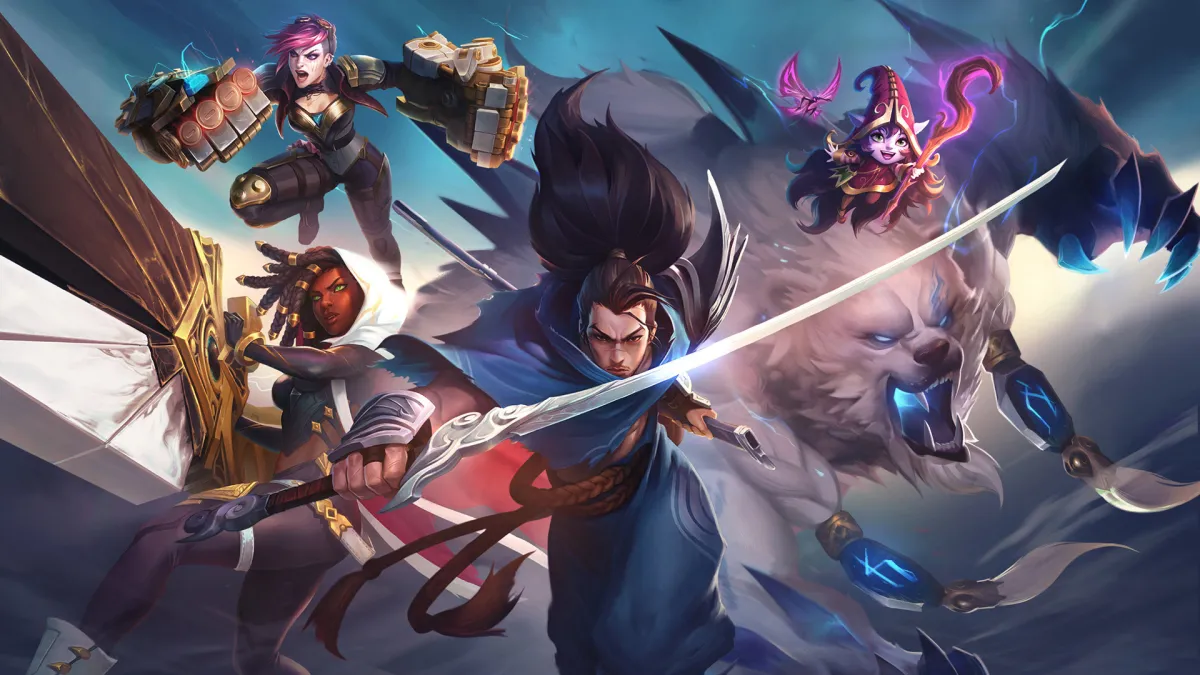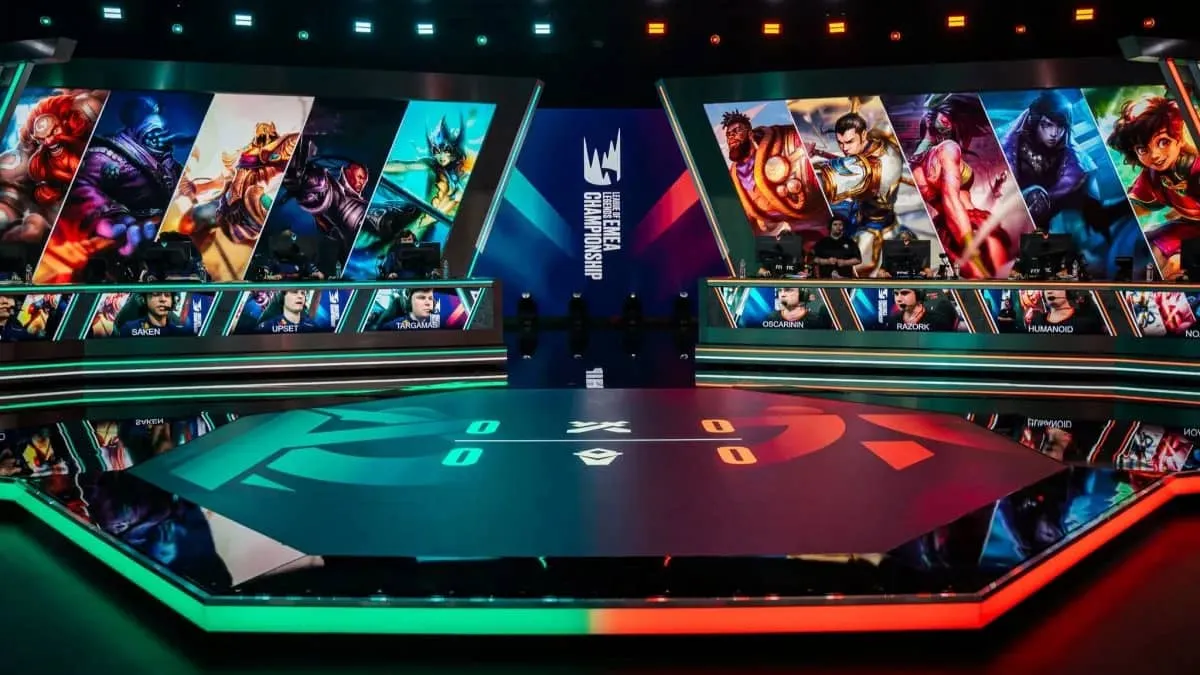The $2.2 million Riot World Championships delivered a thrilling conclusion to the group stage portion of the tournament early this morning, deciding the final four teams that advance to the quarterfinals.
Close matches, upsets, and drama deteremined the tournament fates of the remaining teams at League of Legends‘ biggest competition.
It looked like American team Cloud9 would be eliminated after Alliance’s strong performance yesterday, but the Europeans faltered while the Americans pulled off a historic victory. Cloud9 found themselves in a tiebreaker with Korean team Najin White Shield for the top spot in the group, but their guerilla split push tactics weren’t enough to beat the Koreans a second time.
Chinese team OMG managed to survive the closest group of the tournament, beating LMQ as Fnatic failed to make an impact.
The last day of the group stage taught us some valuable lessons about the level of play around the world.
1) The difference between Korea and the West isn’t as big as we thought
Both Koreans teams in groups with European and American squads lost games in the group stage at Worlds. Cloud9 and Alliance both took games off Najin White Shield, and in a different world where Brazilian underdogs don’t exist, may have knocked Shield out of the group.
Granted, we still don’t know if Cloud9 or Alliance or Fnatic or any of these teams would win a best-of-five with some of these Korean squads, but the possibility looks much more realistic now than it did one month ago.
The narrative about Korean dominance is true, but not on the level advertised before the tournament.
2) We need more international events
This is a tough one. On the one hand, part of what’s made Worlds so fun is the mystique surrounding it—there are so few international tournaments that it enhances the experience when we finally have one that can answer all the questions we’ve discussed all year. Is Cloud9 good enough to challenge a Korean team? Will Fnatic step up again on the World stage?
Games like StarCraft 2 suffer from tournament fatigue, so many events that each one becomes just another tournament. Who cares who wins this week when there will just be another tournament a few days later?
Riot Games make sure to keep international majors sacred, but they could benefit from a few more events each year, in addition to the World Championships and the All-Star Invitational.
When a single auto attack separates Fnatic from potentially advancing and falling out of the tournament, it’d be nice to see them have another chance at it.
3) Cloud9’s historic win shows America’s growth
It’s fitting that Cloud9 became the first North American team to beat a Korean squad in international competition since 2012. No team has been as dominant in their region over the past two years. Despite losing their League Championship Series title this split for the first time, Cloud9 is still the best team in America.
Cloud9 securing a victory over Najin White Shield, and following it up with another impressive performance in a loss against them in the tiebreaker, show the strides the American scene has made in the past year.
One year ago, Europe was the only Western region with any level of real success on the international stage. It’s taken years to catch up, but North America is showing that the investments made in importing player talent and building team infrastructure are paying off.
4) Does Kabum’s win justify the international wild card?
Kabum’s upset victory over Alliance threw a wrench in the standings. It was a historic victory, the first time an international wild card team had ever won a match at the Riot World Championships. One week ago, the community lamented the wild cards inclusion. Group A, for example, was a walkover for Samsung Galaxy White and Edward Gaming, lacking the drama of Group B and C, in part to the inclusion of wild card team Dark Passage.
Kabum’s win shows that even the wild card teams can make an impact. But does that justify their inclusion in the tournament?
Kabum is the exception, not the rule. It’s hard to deny that placing a team like ROCCAT or Curse Gaming in their spot would have made the event even more intriguing, even with the thrilling upset Kabum pulled off.
But it’s also true the wild card does have some value. Kabum certainly thinks the experience is valuable for them, one they can take back to the Brazilian scene and use to build it into an even more competitive region; they’ve said as much in an interview.
It’s a tough issue to address, but a compromise still seems like the best solution. A wild card round, an extra group stage with the wild card teams and teams who just missed qualifying from other regions, would allow the wild cards teams to grow on the international stage and still give them a chance to make an indelible mark on the tournament, just like Kabum.
5) Western teams need more consistency
It’s no secret that Fnatic is capable of some of the most amazing League of Legends play you’ll ever see, followed by inexplicably poor play. They’ve followed 8 game losing streaks with 8 game win streak in the LCS. They limp into the playoffs, only to win the whole thing.
But no one expected Alliance, a paragon of consistency through the LCS this season, beating every team with a 3-1 match record, to suffer the same fate. We saw two different Alliance teams on Saturday and Sunday—one dominating Najin White Shield in the most one-sided match of the tournament, the other struggling against Brazilian team Kabum Esports.
Granted, part of this could just be circumstances. Squads like Team SoloMid have shown a similar level of inconsistency, and even Cloud9 struggled a little against Kabum. Cloud9 is probably the most consistent Western team, but they’ve even put up some bum performances. The West will need to fix this if they want to beat Korea in the best-of-five format.
Image via Riot Games/Flickr






Published: Sep 28, 2014 07:51 pm